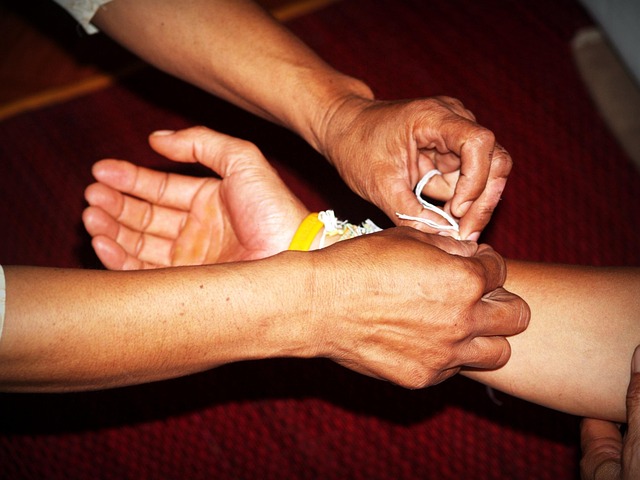In Oregon, grandparent rights allow biological or adoptive grandparents to gain access to their grandchildren when parents are unable or unwilling to provide it. The court process involves filing a petition, followed by assessments of the child's best interests and the grandparent's fitness through home visits, background checks, and interviews. This balanced approach ensures a safe environment for both grandparents and children while recognizing the crucial role grandparents often play in their grandchildren's lives. Grandparents must navigate strict procedures involving petitions, hearings, evidence presentation, and legal considerations to establish or maintain meaningful relationships with their grandchildren.
“Oregon’s legal framework for grandparent rights offers a structured pathway to secure visitation or custody. This comprehensive guide navigates the intricate court process, empowering grandparents to understand their rights and take action. From defining grandparent rights and initiating legal proceedings to hearings, evidence presentation, and various court orders, we demystify each step. Learn about petitioning, serving notices, and potential challenges. Discover enforcement mechanisms and modification processes, ensuring grandparents can effectively apply and enforce their acquired rights.”
- Grandparent Rights: Who Has Them and How They Arise
- – Definition of grandparent rights
- – Legal basis for grandparent visitation/custody
- Initiating a Court Case: Steps Involved
Grandparent Rights: Who Has Them and How They Arise

In Oregon, grandparent rights are legal entitlements that allow biological or adoptive grandparents to seek access to their grandchildren when the parents are unable or unwilling to provide it. These rights can arise in various situations, such as when a parent dies, is incarcerated, has a mental illness, or simply denies visitation. Grandparents who wish to pursue their rights must understand the court process involved.
The first step typically involves filing a petition with the Oregon Court System, seeking legal recognition and specific visitation terms. The court will then assess the best interests of the child and the grandparent’s relationship with them. This may involve home visits, background checks, and interviews to ensure that the grandparent is fit to have custody or regular visitation. The process is designed to balance the rights and needs of both the grandparents and the child, ensuring a safe and healthy environment for all involved.
– Definition of grandparent rights

In Oregon, grandparent rights refer to the legal standing and protections afforded to grandparents in relation to their grandchildren. This includes the right to visit, communicate, and participate in significant decisions regarding the child’s upbringing. Grandparent rights are crucial within the court process, allowing courts to consider the best interests of both the grandchild and the grandparents when making decisions that impact family dynamics.
The Oregon legal framework recognizes that grandparents often play vital roles in their grandchildren’s lives, offering love, support, and a unique perspective. Therefore, grandparent rights are designed to ensure these relationships are protected and nurtured, especially in cases where parents may face challenges or be unable to provide for their children’s needs.
– Legal basis for grandparent visitation/custody

In Oregon, grandparent visitation and custody rights are governed by specific legal frameworks designed to balance the interests of children, parents, and grandparents. The legal basis for these rights is established through a combination of state laws and constitutional provisions. Grandparents seeking visitation or custody must navigate the court system, which involves filing petitions, attending hearings, and presenting evidence to support their case. Oregon courts consider various factors, including the child’s best interests, the parent’s willingness to allow visitation, and the grandparent’s relationship with the child.
The state recognizes that grandparents can play a significant role in a child’s life, providing love, support, and unique perspectives. However, any legal action related to grandparent rights must adhere to strict court processes to ensure fairness and protect the child’s well-being. Understanding these procedures is crucial for grandparents aiming to establish or maintain meaningful relationships with their grandchildren within the Oregon legal framework.
Initiating a Court Case: Steps Involved

Initiating a court case, especially regarding complex matters like grandparent rights, involves several steps within Oregon’s legal framework. The process begins with an individual or entity (petitioner) filing a complaint with the appropriate court, outlining the legal basis for their claim. In cases of grandparent rights, this could be a petition to gain visitation or custody of a grandchild, citing specific legal grounds such as a void in parental care or the best interests of the child.
Once filed, the court will review the complaint and determine its merit. If deemed sufficient, a summons and complaint are served to the respondent (the parent or guardian of the grandchild). This formal notification triggers a response from the defendant, who can either agree or dispute the allegations. The case then progresses through various stages, including discovery, where both parties exchange relevant information, and pretrial hearings, leading up to a trial or settlement negotiation.
